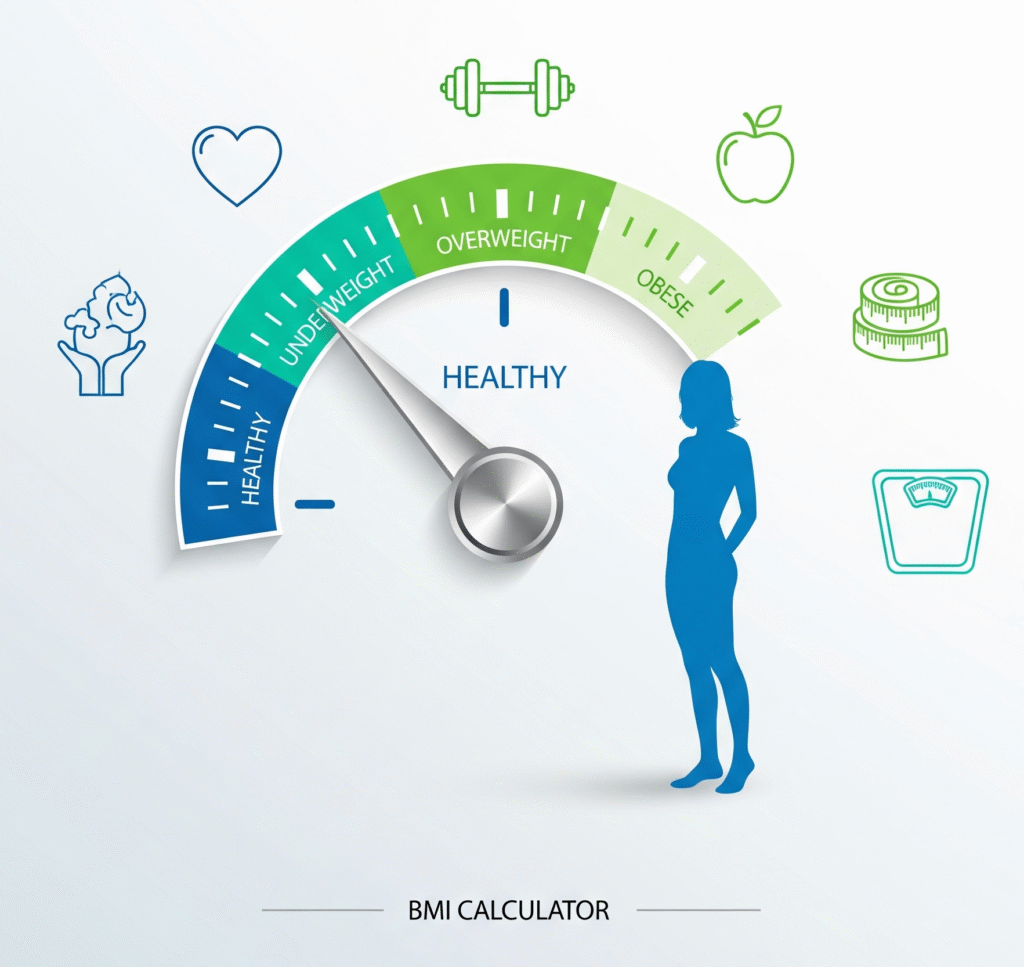Calculate BMI
Body Mass Index by ScholarWing, or BMI, is a simple, widely used screening tool that helps determine if a person has a healthy body weight for their height. It’s a valuable metric for assessing potential health risks associated with being underweight or overweight. While it doesn’t measure body fat directly, it provides a reliable estimate for most adults.

BMI Calculator
Your Result
- Healthy BMI range: --
- Healthy weight for the height: --
- BMI Prime: --
- Ponderal Index: --
How BMI is Calculated
The BMI calculator formula is straightforward: you divide a person’s weight by the square of their height.
- Metric Units: BMI=Height(m)2Weight(kg)
- US Units: BMI=703×Height(in)2Weight(lbs)
- For example, a person who is 170 cm tall (1.7 m) and weighs 70 kg would have a BMI of approximately 24.2 (70÷(1.7×1.7)).
What the Results Mean: BMI Categories
After you input your weight and height into a BMI calculator, your result will fall into one of four main categories. These categories are a standard set by the World Health Organization (WHO) and are used globally to classify body weight.
- Underweight: Below 18.5
- Normal Weight: 18.5 – 24.9
- Overweight: 25.0 – 29.9
- Obesity: 30.0 and above
These categories serve as a general guideline. For most people, a BMI in the “Normal Weight” range is associated with the lowest risk of major health issues.
Limitations of BMI Index Calculator
It’s important to remember that BMI or body index calculator is a screening tool, not a diagnostic one. It should be used as a starting point for a conversation with a doctor or health professional. Its main limitation is that it doesn’t account for body composition, such as muscle mass.
- Muscle vs. Fat: A bodybuilder with a high amount of muscle mass might have a high BMI, putting them in the “Overweight” or even “Obesity” category, even though their body fat percentage is low.
- Age and Gender: BMI doesn’t adjust for age or gender, although ideal ranges can vary.
- Body Type: It doesn’t differentiate between different types of fat distribution.
Why Use a BMI Calculator?
Utilizing a BMI calculator provides a convenient means to assess your health status promptly. This tool can serve as an incentive for establishing a healthy weight target or tracking your advancements continuously. Whether aiming to increase, sustain, or reduce weight, being aware of your BMI can serve as a beneficial compass on your path to well-being.

